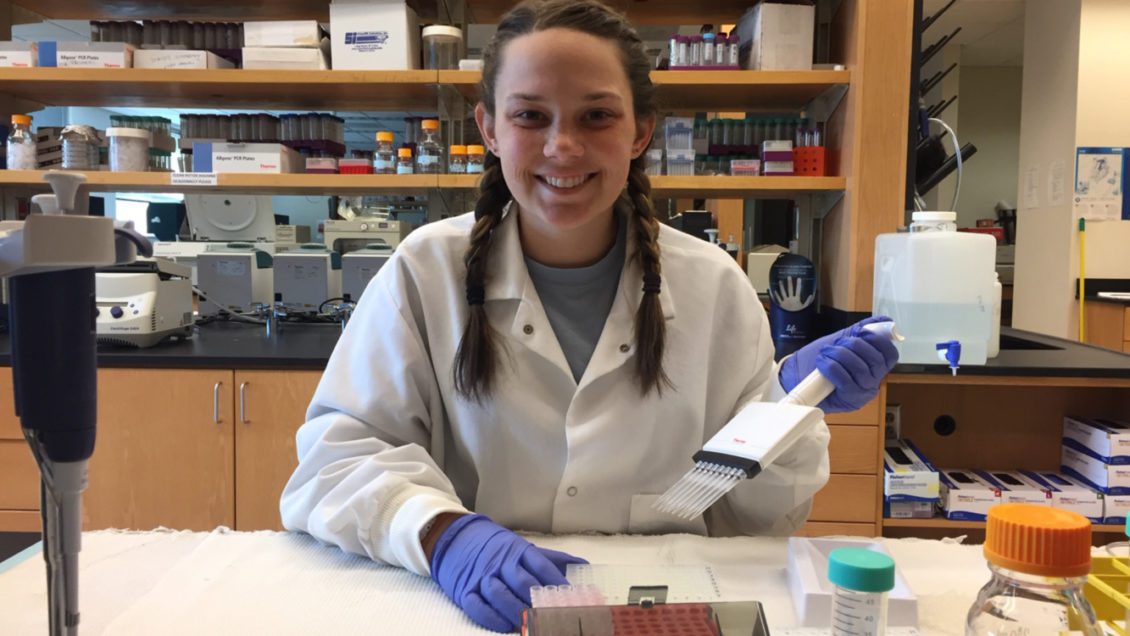Texanna Miller, a junior Plant and Environmental Sciences major, won third place in the undergraduate poster competition at the 2019 American Society of Horticultural Science Conference. The conference was held in Las Vegas and brought together hundreds of horticulture researchers, scientists and students to cultivate ideas and share new techniques. The five-day event featured technical sessions, poster presentations and keynote speakers.

Miller’s award-winning poster is entitled “A DNA Test for Routine Prediction in Breeding of Peach Bacterial Spot Fruit Resistance.” This particular poster had previously won 1st place in the 2019 CAFLS Undergraduate Research Poster Competition at Clemson, and its recognition inspired Miller to present it on a national stage at the conference.
The poster highlights a groundbreaking peach genetic testing process that Miller developed under the mentorship of Clemson professor Ksenija Gasic. Her findings present a management option for disease control and meeting consumer demand for chemical-free, environmentally friendly fruit production.
Miller’s research uncovers a method of distinguishing, while still in the greenhouse, which genetic characteristics of peach seedlings result in extra resistance to disease in the field. This knowledge allows peach farmers to maximize resources by planting only the seeds with the best chance of survival.

“Knowing that a seed is resistant to bacterial spot is a big step in peach production because it is a very, very predominant disease in the Southeast region. It alone can be responsible for millions of dollars in damage and can wipe out entire orchards because it’s very easily transmitted,” Miller explained. “So, this testing process can be a big cost saver for farmers and groups who want to plant resistant trees. They can focus less on chemical controls since the disease is less likely to get introduced.”
Miller’s testing method enables her to make predictions about peach disease resistance with 80% accuracy. These results demonstrate that Miller’s method is a time and cost-efficient alternative to traditional genotyping, which takes years and can be very pricey. Miller was able to test 96 samples in just a few hours, where each sample only cost about 10 cents.
Miller’s attendance at the 2019 American Society of Horticulture Conference was made possible through funding she received from the CAFLS Century Club, which fully covered her travel expenses and admission. Her experience there is a direct result of the CAFLS Advantage program, which funds learning experiences beyond the classroom, develops a student’s critical thinking skills, prepares graduates to meet their career goals, and fuels the inspiration to tackle the grand challenges facing our state, nation and the world.
Get in touch and we will connect you with the author or another expert.
Or email us at news@clemson.edu

